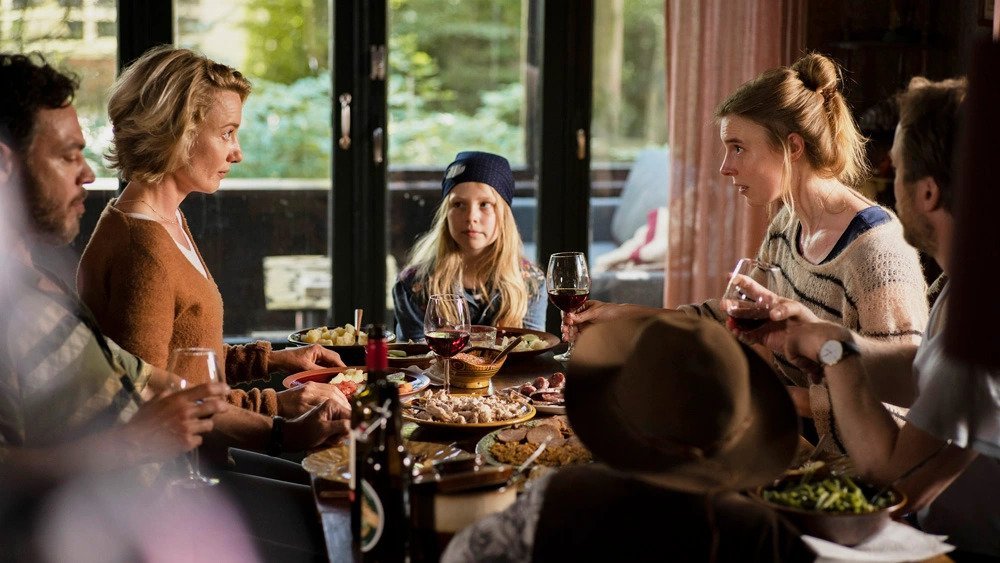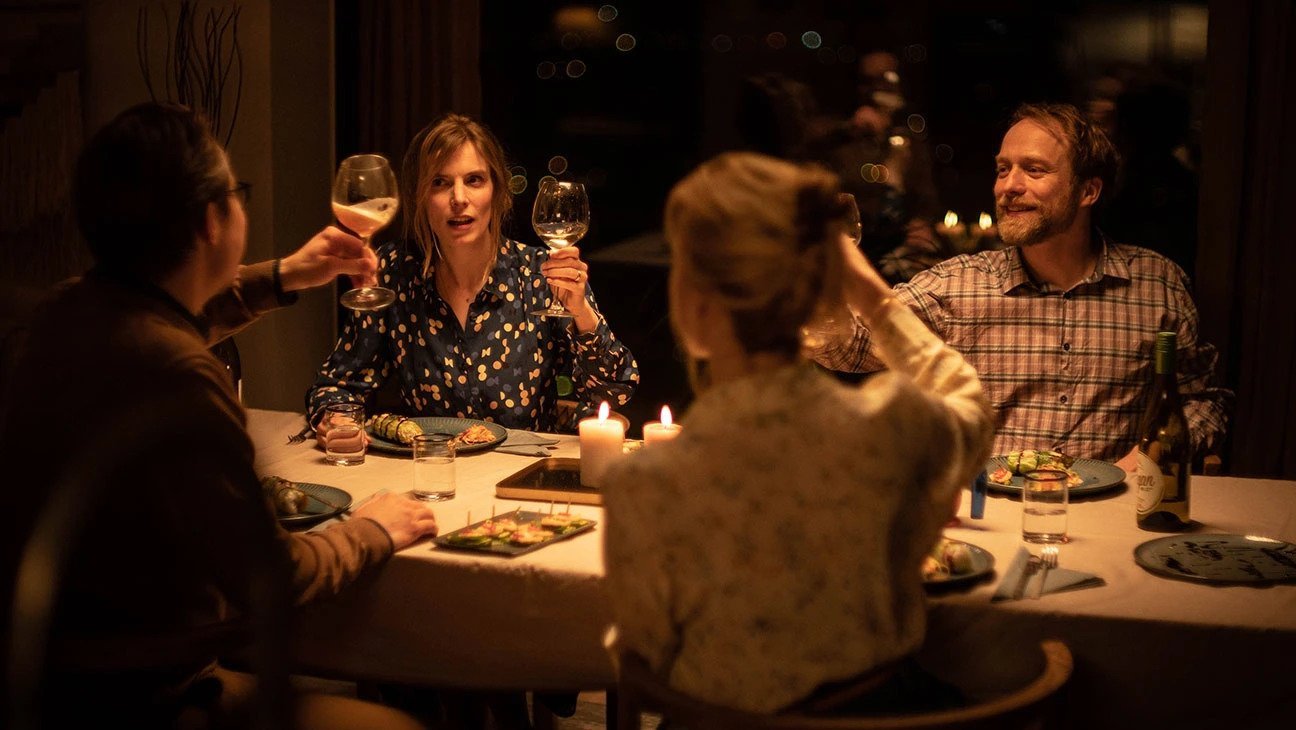Speak No Evil Review
9.5/10
Speak No Evil is designed to be infuriating. It is brutal, nihilistic, and bleak. There have been plenty of films to tackle the idea of innocent people encountering mysterious strangers who pull them into a twisted world. Hitchcock’s classic Strangers on a Train is a great example of this. There is a fascination to be found with the idea of meeting a stranger in a foreign location who takes you down a dark path. We never want to encounter this in real life of course, but we can’t help thinking about the possibility. Would you trust someone you just met enough to risk compromising your safety?
We would like to think that would never happen to us. No way could I ever be hoodwinked by a person I don’t know. I am far too perceptive to fall for that trick. Films like this inspire a strange macho reaction from people. We see characters making obvious mistakes and, in our heads, we visualize a version of the story where we fight back and redirect a dark tale to a happy end. We pretend that we are infallible badasses who would beat up the villain and save the day. If only that delusion were true.
The film introduces us to Bjørn (Morten Burian) and Louise (Sidsel Siem Koch), a Danish family on vacation in Italy with their daughter Agnes (Liva Forsberg). Here they meet a friendly couple, Patrick (Fedja van Huêt) and Karin (Karina Smulders). They are on vacation with their son Abel (Marius Damslev). The two couples instantly hit it off and end up spending time together. There are no signs of anything strange or uncertain. Patrick and Karin appear to be welcoming people and loving parents.
The film sprinkles hints as to what kind of person Bjørn is. He is a caring father to his daughter, but there is very little joy on his face. During a music performance on the trip, there are tears in his eyes. Patrick notices this and chooses not to say anything. When Agnes loses her favorite stuffed animal, Bjørn wanders around the city trying to find it. Any parent can understand why he would do this to soothe his daughter’s anguish. She is distraught without her stuffed animal. When Bjørn finds it, there is a peculiar moment where he savors the time alone. On the surface, he is a happily married man, yet beneath that veneer, he is hiding his true desperation.
Not long after the trip, Bjørn and Louise are invited to stay with Patrick and Agnes at their home in the Dutch countryside. They are initially skeptical about this journey since they barely know these people, but eventually, they decide to accept the invitation. All appears to be going well when they arrive. Patrick and Louise are over the moon to have their new friends over. They are given their own spare room, and Agnes stays with Abel. All signs point to this being the beginning of a fantastic trip and a beautiful friendship. The film is patient with the suspense, not letting us in on the secret for quite a long time. It is over an hour into the film before the obvious signs of uncertainty emerge.
Louise becomes wary of staying in the house far quicker than her husband. She can get a sense early on that the situation is not what it seems. These ominous signs could easily be interpreted as miscommunication or cultural differences. Patrick and Karin have different lifestyles, and Louise and Bjørn are trying to be respectful, even as the dread mounts. The film is masterful at dropping breadcrumbs leading into a dark forest. You can’t tell what lies in wait in the dark trees, but there is a sense of foreboding for what might be there. Many people who watch the film may think to themselves, why don’t they run?
There is a psychology behind why those in distressing circumstances don’t immediately exit. It is called “Normalcy Bias,” a cognitive bias that leads people to minimize threats and push aside warnings. We see this constantly throughout history. Look at the many times when a serial killer was not caught for years, even when the danger seems obvious in retrospect. We don’t want to believe the worst in people, so often we block our brain’s alarm bells. Bjørn and Louise are not locked in this house, they can leave at any time. Due to a combination of this bias and not wanting to be rude, they stick around far longer than they should.
There are multiple times during the film where I thought I would speak up in their situation and stand up for myself, but I probably wouldn’t if I was actually in their predicament. Most of us have had those moments where we accept an uncomfortable encounter rather than fight against it. Patrick and Karin are well aware that Louise is a vegetarian, yet they insist on offering her meat constantly. She does not want to come across poorly, so she accepts the food even though it is against her better judgment. These awkward snapshots would be easy to dismiss in isolation. The film ratchets up the fear as we become warier of this couple and their intentions.
This is where Speak No Evil will lose some viewers. It is committed to these main characters being passive and accepting of their treatment. They still question what is going on, so they’re not entirely clueless. They just don’t resist enough to actually fight back. This apprehension they voice ends up being futile since they continue to stay with Patrick and Karin. I loved the way the film makes us feel just as uncertain as Bjørn and Louise for most of the running time. Since we have no idea what is going on, we want to think that things will end up being okay in the end. I will not spoil what the film is building up to. That is a huge part of the appeal of thrillers like this. They creep under your skin and instill a sense of paranoia. Not many films in the past few years have been able to make me feel the amount of tension that this film has.
All the performances are great across the board. A story like this is dependent on buying into these people’s lives. Morten Burian in particular conveys a deep sadness in his eyes and demeanor. Even when he is with his family and seemingly happy, you can tell that he represses his thoughts and feelings to get through the day. Fedja van Huêt and Karina Smulders are wonderfully ominous. They feel like the kind of people you would meet on holiday and form a quick friendship with. Sidsel Siem Koch creates a sympathetic and relatable person in Louise. Even when I don’t agree with her actions, I can still understand where she is coming from. If you’re looking for a great bleak thriller and don’t mind some frustrating character decisions, then Speak No Evil is the film for you.









